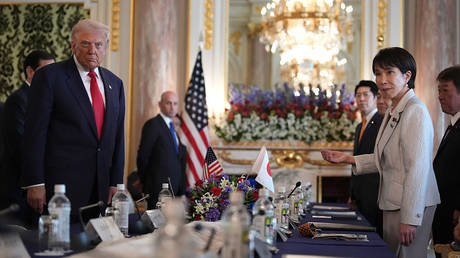Who leads the mafia cartel in the business of exporting pigeon beans from Mozambique to India?
There are 33 companies belonging to five business groups that hold a monopoly on the export of pigeon beans. With India struggling due to weak domestic production capacity and increasing demand, the cartel is using a memorandum of understanding signed in 2016 between the governments of Mozambique and India to apply exorbitant prices.
A publication from last July 26th by "The Free Press Journal" exposes the existence of a mafia cartel in Mozambique that is causing concerns of corruption in the business of exporting Pigeon beans from Mozambique to India.
The publication mentions 33 companies owned by five business groups that hold the monopoly on the export of pigeon beans. With India facing trouble due to low internal production capacity and increasing demand, the cartel is utilizing a memorandum of understanding signed in 2016 between the governments of Mozambique and India to impose excessive prices. India cannot afford these prices. In the short term, the cartel's actions could have consequences for the Indian diet. The cartel has its partners on the Indian side.
On the Mozambican side, there is involvement of business groups associated with political parties. According to the publication, the "Royal Group" is one of the actors in the cartel. The cartel might also be involved in under-invoicing. Our investigation presents evidence of discrepancies between the declared price and the expected price, meaning the cartel declares a low price to the Mozambique Tax Authority, thereby harming the state in terms of tax collection.
Information available on the website of the Mozambique Institute of Cereals indicates that pigeon beans, scientifically designated as "Cajanus Cajan", are cultivated in tropical and subtropical regions in semi-arid areas. Worldwide, according to FAO data, there are approximately 2.9 million hectares of these beans with an average production of 700kg/ha.
In Mozambique, the provinces of Zambézia, Nampula, Niassa, and Tete are the best in terms of production. Most of the recent production of pigeon beans has been for export.
A publication titled "Analysis of the Value Chain of pigeon beans in Mozambique: Public Policies and Action Plan," authored by Jorrit Oppewal and Alberto da Cruz in 2017, indicates that pigeon beans are produced by a large number of small farmers. In recent years, there has been an increase in production areas and yields of these beans, due to the introduction of higher-yielding varieties, promotion and marketing schemes, and increased demand for these beans in Asian markets.
Several studies, including the recent publication by the non-governmental organization Rural Environment Observatory, emphasize that pigeon beans are an export crop, and their production is expected to grow in Mozambique.
Under the 2016 memorandum, India committed to importing 125,000 tons of pigeon beans in 2017-2018, gradually increasing to 200,000 tons by 2020-2021. In July 2021, the parties renewed the agreement signed in 2016. India committed to importing 200,000 tons of pigeon beans over a five-year period, until 2026, according to the October 12, 2022, edition of the newspaper "Diário Económico."
The cartel's actions and their impacts on Mozambique and India:
According to "The Free Press Journal," India is currently facing a severe shortage of pigeon beans. The main areas producing pigeon beans in India are experiencing a seed shortage of 45 to 50 percent, which will impact future harvests. In this crisis scenario, "the Mozambican exporting cartel [is using the memorandum] for monetary gains and to create panic in the market, thus promoting large-scale corruption."
According to the same source, the three main countries producing pigeon beans at this time of year are Mozambique, Malawi, and Tanzania. Among these three, Mozambique has the largest production and is also a beneficiary of the memorandum of understanding.
"Thus, in 2017, while all types of lentils were imported by India due to buffer stocks, India still honoured the memorandum of understanding and accepted only Mozambican pigeon beans for four consecutive years," the publication states, noting that during this time, India could have refused imports as it had sufficient production, but it did not.
"This year, the Mozambican government, seeing that India needs pigeon beans, should clearly reciprocate and facilitate the export of a large quantity of pigeon beans to India," the publication continues. It states that instead of facilitating the process, the Mozambican government is succumbing to the pressure of a growing Mozambican cartel of a few exporters aiming to monopolize agro-exports and make it difficult for local exporters to export pigeon beans freely by announcing a super licensing system specifically for pigeon beans export.
The publication notes that licenses were granted to members of this cartel represented by fictitious companies. It speaks of a total of 33 companies that obtained export rights, which represent about four to five groups responsible for this cartelization, resulting in an exorbitant increase in pigeon beans prices that the Indian public cannot afford.
Our investigation contacted the Mozambique Institute of Cereals to inquire about the companies involved in the export business, but without success. From the various studies and news consulted, there is no reference to the companies. "The export market is concentrated, dominated by 5 companies engaged in the export of this legume to India and the United Arab Emirates," reads the publication by Jorrit Oppewal and Alberto da Cruz.
However, from a source familiar with the matter, we learned that a business group affiliated with a political party is involved in the business, along with influential political figures associated with the ruling party.
On the Indian side, the main actor in this cartelization is the Royal Group, which, according to the publication, is seeking revenge against the Indian government for seizing its two ships.
At present, the export of pigeon beans is suspended as the certificate of origin is not being issued, and there appears to be a quota system for its export, which could likely disrupt the supply chain.
Under-invoicing in pigeon beans exports:
Emílio Tostão and Eulália Macome have reflected on the trade of beans, exploring the case of pigeon beans export. The two researchers estimated the export parity price of pigeon beans measured at the port of Nacala in Mozambique and compared it to the price declared to the Tax Authority by exporting companies. They concluded that most of the companies exporting pigeon beans from Mozambique to India declare values to the Mozambique Tax Authority well below the parity price.
Concentration in the pigeon beans export market could facilitate conspiracies among exporting companies and result in similar prices among them but well below the expected price, measured by the export parity price.
"It is easy to see that the average price declared by most companies and exporting agents is lower than the expected prices, estimated by the export parity price at the port of Nacala. The data suggest that companies are under-invoicing the declared export prices to the Tax Authority by about 65%," the publication reads.
The cartel's action in the under-invoicing component impacts state revenue collection. In the "freeze" of exports component, the cartel's action harms not only India but also Mozambique, as the Indian market, while not the only one, is the main market.
















